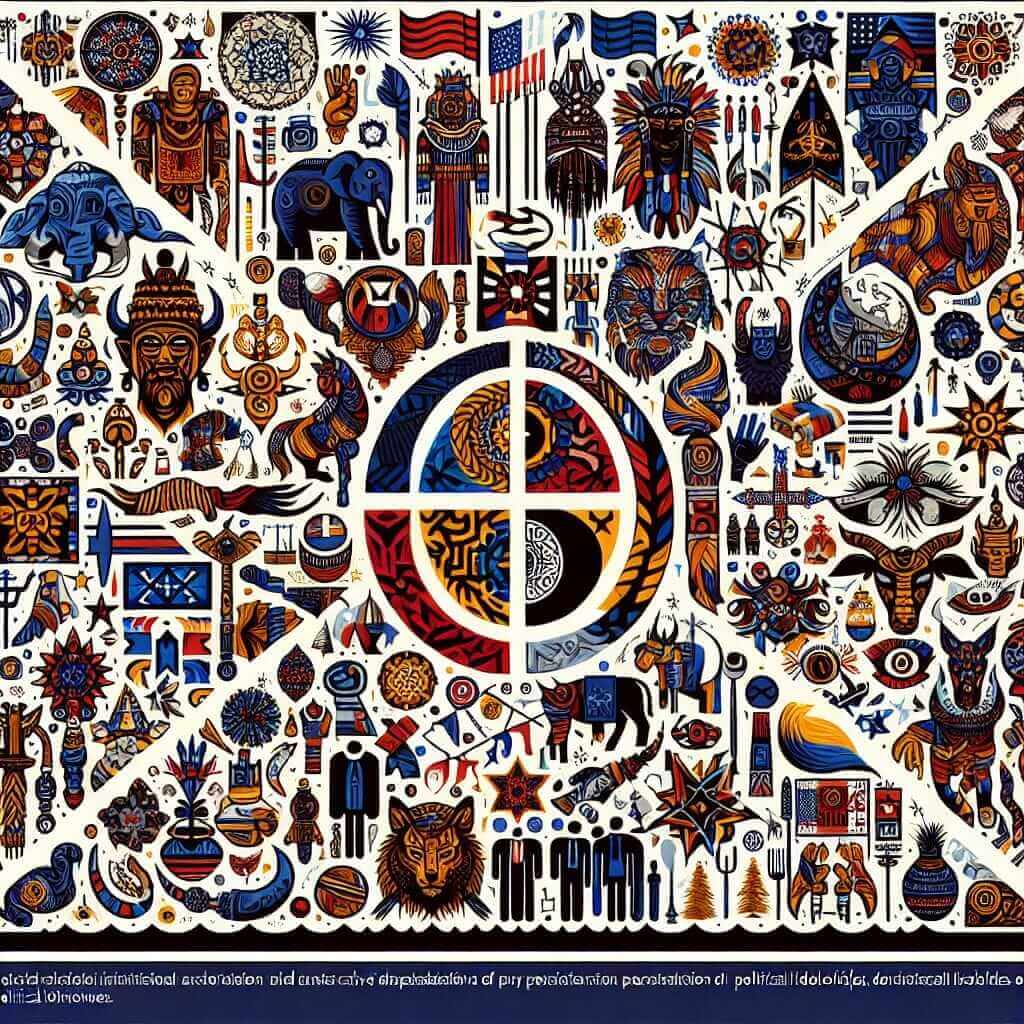The intersection of culture and politics is a fertile ground for discussion and debate, particularly in an increasingly globalized world. Understanding how cultural identity influences political views is crucial for comprehending individual choices and societal trends. This intricate relationship frequently appears in IELTS Writing Task 2, encouraging test-takers to analyze, evaluate, and articulate their perspectives on this complex issue.
Let’s examine some potential IELTS essay questions related to this theme:
- Some people argue that cultural identity significantly shapes individuals’ political views. To what extent do you agree or disagree with this statement?
- In an era of globalization, discuss the impact of cultural identity on political attitudes and voting patterns.
- How can governments balance respect for cultural diversity with the need for national unity in shaping political discourse?
Sample Essay: Analyzing Cultural Influence on Political Views
For our sample essay, let’s focus on the first question:
Some people argue that cultural identity significantly shapes individuals’ political views. To what extent do you agree or disagree with this statement?
Analyzing the Question
This question requires us to assess the degree to which cultural identity influences political viewpoints. It demands a clear stance – agreement, disagreement, or a balanced perspective acknowledging both sides. Supporting arguments should be presented with relevant examples and logical reasoning.
Sample Essay
It is undeniable that individuals are products of their cultural backgrounds. Our values, beliefs, and perspectives are molded by the societies and communities we inhabit. Therefore, it is reasonable to posit that cultural identity plays a significant role in shaping political views, although the extent of this influence can vary greatly.
One compelling argument supporting this notion is the impact of cultural values on political stances. For instance, societies that prioritize collectivism, like many Asian cultures, might be more inclined towards political ideologies emphasizing social welfare and community responsibility. Conversely, individualistic cultures, often found in Western societies, might resonate with political platforms championing individual liberty and limited government intervention. This illustrates how deeply ingrained cultural values can directly influence political leanings.
Furthermore, historical narratives and collective memory within a culture can shape political perspectives. Groups that have experienced historical oppression or marginalization may gravitate towards political movements advocating for social justice and equality. For example, the Civil Rights Movement in the United States was deeply intertwined with African American cultural identity, drawing strength from shared experiences and aspirations.
However, it is crucial to acknowledge that cultural identity is not the sole determinant of political views. Factors like socioeconomic status, personal experiences, and access to education also play significant roles. The rise of global interconnectedness and exposure to diverse viewpoints further complicate this relationship, potentially leading individuals to adopt political stances that deviate from traditional cultural norms.
In conclusion, while it is overly simplistic to claim that cultural identity is the only factor shaping political views, its influence is undeniable. Cultural values, historical narratives, and shared experiences within a community significantly contribute to an individual’s political socialization. However, recognizing the interplay of cultural identity with other personal and societal factors provides a more comprehensive understanding of this complex relationship.
Word Count: 322 words

Writing Tips and Vocabulary
Key Considerations:
- Clear Stance: Clearly state your position on the issue, whether you agree, disagree, or offer a balanced perspective.
- Supporting Arguments: Provide strong arguments supported by relevant examples and logical reasoning.
- Diverse Vocabulary: Utilize a wide range of vocabulary related to culture, politics, and societal values.
- Cohesive Structure: Organize your essay logically with clear topic sentences and smooth transitions.
Useful Vocabulary:
- Cultural Identity: The feeling of belonging to a particular group with shared customs, beliefs, and values.
- Political Views: Opinions and attitudes towards political systems, parties, and policies.
- Socialization: The process by which individuals learn and internalize societal norms and values.
- Collectivism: A cultural value emphasizing group harmony and social responsibility.
- Individualism: A cultural value prioritizing individual rights and self-reliance.
- Historical Narrative: The stories and interpretations of past events that shape a culture’s understanding of itself.
- Marginalization: The treatment of a person, group, or concept as insignificant or peripheral.
- Global Interconnectedness: The increasing integration and interdependence of nations and cultures.
Conclusion and Further Practice
Exploring the influence of cultural identity on political views is an essential exercise in understanding the complexities of the modern world. While this sample essay provides a framework for approaching such questions, it’s crucial to continuously practice and refine your writing skills. Remember to analyze various essay prompts, expand your vocabulary, and refine your ability to articulate nuanced arguments. By doing so, you’ll be well-equipped to tackle any IELTS Writing Task 2 question related to this multifaceted topic.
For further practice, consider these additional essay prompts:
- To what extent do you believe that globalization is leading to a homogenization of political views, regardless of cultural differences?
- Discuss the role of education and media in shaping political attitudes within a particular cultural context.
- Analyze how cultural identity can both unite and divide societies in the realm of politics.